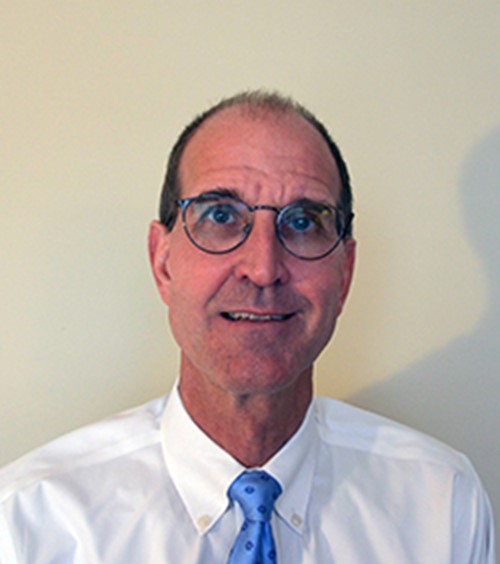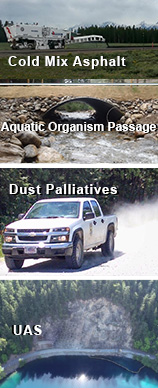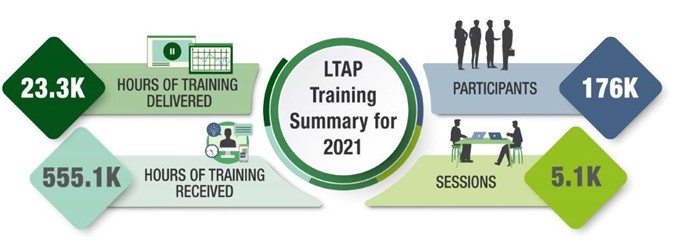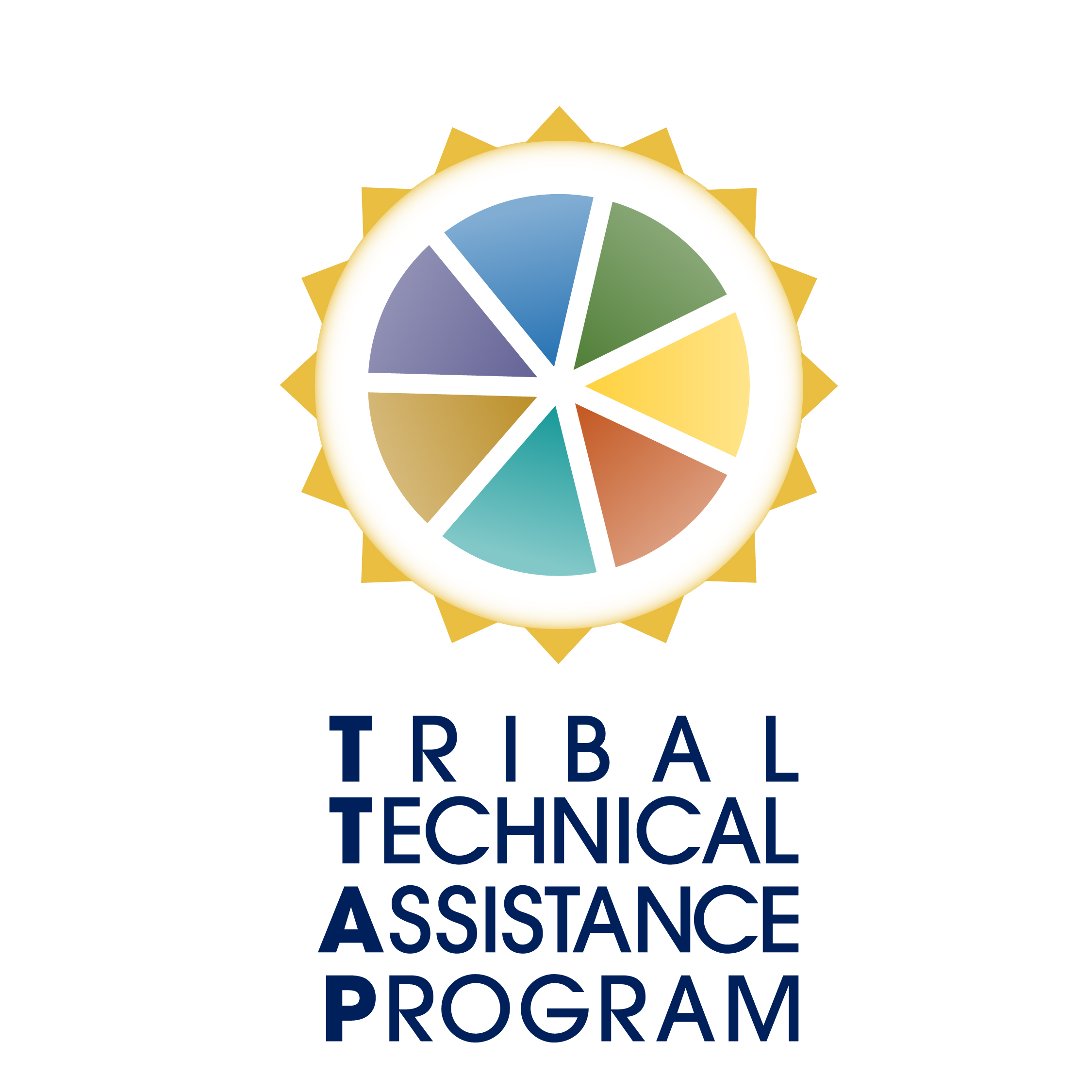


The Local Aid Support team’s mission is to provide innovative, solutions-oriented training and technical assistance to keep pace with an everchanging transportation workforce. This is accomplished through collaboration with a diverse mix of local and Tribal transportation networks that include 51 Local Technical Assistance Program Centers (LTAP) and seven Tribal Technical Assistance Program Centers (TTAP).

The purpose of the FHWA Local Aid Support Innovation Exchanges is to provide a peer-to-peer platform for local agencies to share innovative solutions to transportation challenges. “Some of the best ideas come from the front-line workers. The Innovation Exchanges give them an opportunity to share, while encouraging a sense of community around the importance of going outside the box to solve problems,” says Joe Conway, Local Aid Support and Workforce Development Director. A reboot of the monthly webinars has been a partnership effort with the Office of Federal Lands Highway. The collaborative effort has expanded the list of solutions available to local agencies. “We are grateful for the opportunity to collaborate with the Local Aid Support team and are excited to share this platform with the Federal Lands community of innovators. I look forward to continuing the work in 2023,” says Karyn Vandervoort, National Program Manager for Research and Innovation in FHWA’s Office of Federal Lands Highway.
Since the series reboot in January 2022, the monthly Innovation Exchange webinars have featured a wide range of solutions, including cold-in-place recycled asphalt, beaver deterrents, dust palliatives for unpaved roads, and uses for unmanned aircraft systems (UAS) such as drones. Many more innovative solutions are planned for 2023. For more information visit the Local Aid Support site.

2022 was another busy year for the 51 Local Technical Assistance Program (LTAP) Centers. They collectively provided over 555,000 hours of training to local government agencies and Tribes across the country. Many of the training participants are front-line workers looking for innovative solutions and professional development opportunities. Some of the training topics included gravel road maintenance, work zone design, crash and safety statistics, asphalt resurfacing, and much more. The training was provided either in-person or online, varying by States. “The phenomenal work of the LTAP Centers comes during a year they are celebrating 40 years of service to transportation professionals everywhere. We look forward to building on their efforts in 2023,” says Danielle Mathis-Lee, FHWA LTAP Program Manager. For more information on LTAP, visit https://www.fhwa.dot.gov/clas/ltap/.

The Local Aid Support team provided leadership to re-establish the Tribal Technical Assistance Program (TTAP) in 2022. Following a notice of funding opportunity, the FHWA selected six regional locations to house the new TTAP Centers:
The TTAP Centers will serve as a go-to local resource for Tribal transportation training, technical assistance and technology transfer needs and opportunities. “Re-establishing regional TTAP Centers will help Tribal governments increase their ability to plan, develop, deliver and manage transportation programs, projects and critical infrastructure,” said Deputy Federal Highway Administrator Stephanie Pollack. “These capacity building resources are particularly critical now with new resources flowing to Tribes thanks to the Bipartisan Infrastructure Law.”
A TTAP Center to support tribes in the Eastern and Midwest regions will be selected in 2023. For more information on TTAP, visit https://www.fhwa.dot.gov/clas/ttap/.
Build a Better Mousetrap is a national recognition program that raises awareness about the use of innovative solutions in local government and Federally recognized Tribal agencies. In 2022, the FHWA received a record 67 nominations across four categories. The winners were nominated through their State LTAP Center and selected by the FHWA Local Aid Support Team. The winning solutions save money, time, improve processes and increase safety for the front-line workers and the communities they serve. The 2022 winners are:
Bold Steps Award: Guardrail Maintainer developed by the Walsh County Highway Department in North Dakota. Description: The attachment tool quickly removes debris from around the guardrails so that it does not get into the roadway and create a safety hazard for drivers.
Innovative Project Award: Sidewinder developed by the South Manheim Township in Schuylkill County, Pennsylvania. Description: A tool designed to fill barriers or berms with compact materials such as gravel, soil, and rocks to control water flow along the roadways.
Smart Transformation Award: Public Survey Tool developed by the Autonomous Municipality of Toa Baja, Puerto Rico. Description: An online survey tool for residents to immediately report damage during emergency events and to help emergency workers with response efforts.
Pioneer Award: Culvert Cleaner developed by the Washington County Department of Public Works in New York. Description: A tool that quickly and safely removes dirt and debris build-up from culverts to prevent water backup and flooding along the roadways.
“All of the winners join a long list of local agencies who start each day thinking about how to improve the delivery of their transportation programs. Congratulations to each of them for putting safety and innovation first,” says Joe Conway, Local Aid Support and Workforce Development Director.
For more information on Build a Better Mousetrap, visit https://www.fhwa.dot.gov/clas/babm/.